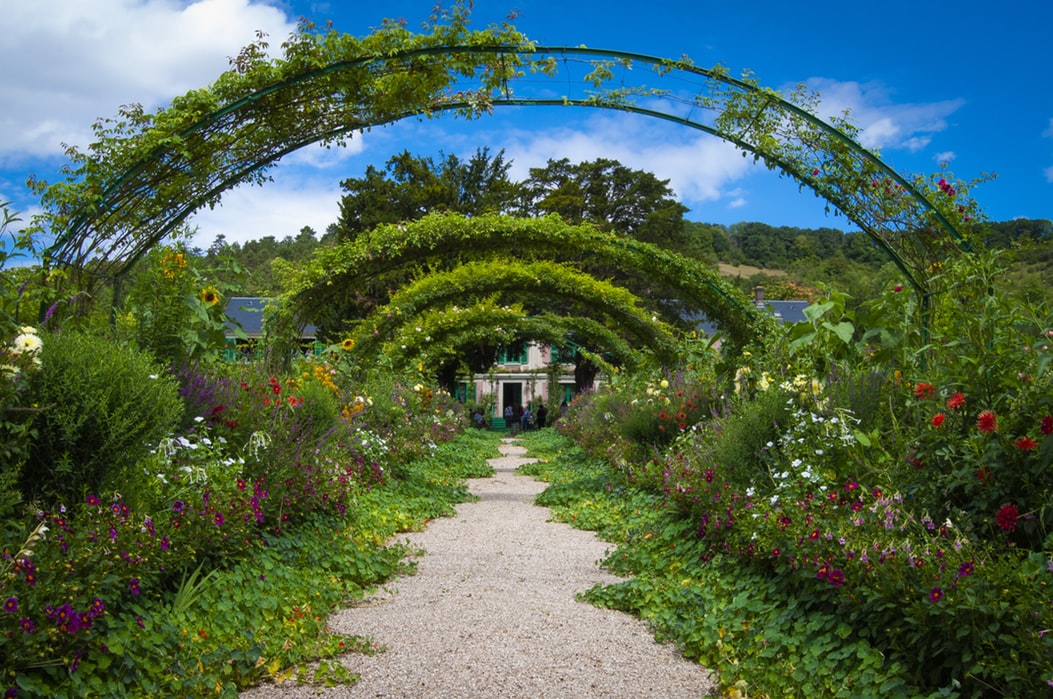By Kathy Finley, Director of Family Services at Concierge Care Advisors
As I have written here before, I am a gardener. Whether it was at my previous home with both large vegetable and flower gardens, or at my current apartment patio and volunteer opportunities at a local farm. I have always felt better after even a half hour out weeding or pruning, or admiring my plants. A renowned neurologist Oliver Sacks said “ In 40 years of medical practice I found only two types of non-pharmaceutical ‘therapy’ to be vitally important for patients with chronic neurological diseases: music and gardens”. People have different reasons for seeking out gardens. Some seek relief from chronic stress, some an elusive puzzle or conundrum, or just to stop thinking about work. Apparently, Charles Darwin had a habit of daily garden walks on his dedicated “Thinking Path”. I wonder if he came up with his theory of evolution on this “Thinking Path”.
I recently found an article from the Seattle Times about Garden Discovery Walks. This a collaborative program with the Memory and Brain Wellness Center at UW Medicine and the Seattle Parks and Recreation. Their feelings are that given the potential for gardens to positively affect the brain, it should be no surprise that garden walks can be effective therapeutic tools for people with memory loss. This program is so progressive that Seattle Parks is the only department in the country that offer dementia – friendly recreation programming. Therapists, doctors and volunteers have partnered to organize monthly garden walks followed by nature-based art crafting for people with memory loss. This happens the first Friday of each month for a 2-hour guided tour followed by the crafts, all lead by a licensed horticultural therapist. I didn’t even know this job title existed! Gardens that participate include Kubota Garden, Seward Park, Dunn Gardens, Bradner Gardens Park and Bellevue Botanical Gardens.
Garden walks can reduce anxiety and make it easier for those with memory loss to interact with people around them. The art crafting allows the participants to engage their motor skills and access their inner creativity. After more Googling, I have found that just about every community in Western Washington has some kind of guided walking tours for people with memory loss and their caregivers.
Another collaboration of effort for our dementia population is called Momentia; “Momentia is a grassroots movement empowering people with memory loss and their loved ones to remain connected and active in the community.” From their website, Momentia has three main components:
- A joyful proclamation that people living with dementia can maintain full and meaningful lives in community, lives of creativity, connection, joy, purpose, health and strength. This story is told most vividly through the voices and experiences of people living with dementia.
- An irrepressible community transformation with growing opportunities for people living with dementia to connect, engage and give back. The new dementia story is told through Alzheimer’s Cafe experiences at neighborhood coffee shops, dementia-friendly art classes at local museums and parks, volunteer programs at the food bank, memory loss walks at the zoo, and more.
- An irresistible invitation for everyone to work together, telling the new dementia story in creative and delightful ways: starting programs, creating films, talking with neighbors, writing articles, advocating for dementia-friendly improvements in your organizations, congregations and neighborhoods.
Here is the website: www.momentiaseattle.org so you can see the huge number of events on their monthly calendar. You will find events including music, dancing, community/garden walks, zoo walks, memory cafes and more, from Skagit county down to Thurston county.

























